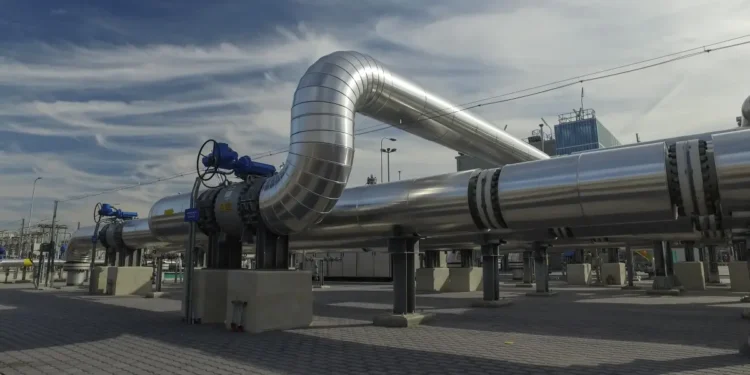Il gas will continue to play a fundamental role inenergy supply global, even in a context of growing transition towards renewables. Although the decarbonization is a priority, gas remains a key element to ensure energy security and system balancing, especially during the times of crisis. In this scenario, the conference “Gas, Energy and the Government of Molecules”, organized by the Center in collaboration with Open Gate Italia and the Institute for Competitiveness (I-Com) and sponsored by Società Gasdotti Italia, provided an important opportunity to reflect on how Italy, and Europe in general, are addressing the challenges related to gas and the energy transition.
Diversification and Energy Security
The main focus was on the need for diversify supply sources, an essential step to reduce dependence on traditional suppliers, such as Russia, which saw a 93% drop in its exports to Italy between 2022 and 2023. Growing geopolitical uncertainty makes a reorganization of energy routes urgent, with Italy aiming to be a protagonist in a Mediterranean increasingly strategic for Europe.
Another key aspect that dominated the debate was the role of infrastructure strategic. The regasifiers floats, like those of Piombino e Ravenna, have been hailed as key players in ensuring continuity of supply during recent energy crises. If there is one thing that has been learned in recent years, it is that having the right infrastructure is essential to never being caught off guard.
Biomethane and hydrogen: the pillars of the energy future and the fight against emissions
But there is not only conventional gas: the energy transition also focuses on gas renewable, with the biomethane andhydrogenor that emerge as the real workhorses for the future. The REPowerEU plan for example, it foresees the production of 35 billion cubic meters of biomethane by 2030, which will contribute to meeting approximately 8% of the overall consumption of the European Union. A step that, in addition to reduce CO2 emissions, represents a promising growth opportunity for the industry.
In this regard, the question of the reduction of methane emissions has been highlighted as crucial. A commitment that does not only concern gas production at national level, but also imports, with the aim of setting more stringent European standards to ensure that gas reaches Europe in compliance with climate goals. In such a context, Italy is establishing itself as a strategic bridge between Europe, Africa and the Mediterranean, a role that becomes increasingly important if we consider the global challenges that involve the energy sector.
Meanwhile, the numbers speak clearly: in the first half of 2024, the consumption of natural gas in the European Union fell by 5,4%, marking a reduction of 7 billion cubic meters in 2023. This figure confirms the growing energy efficiency and the adoption of renewable sources, but also the continued need for a balanced management of fossil resources in a transition phase.
Gas, biomethane and hydrogen: the new frontier of Italian energy
At the national level, Italy is facing a decline in natural gas production, but is also investing heavily in new solutions, such as biomethane and hydrogen, so as not to remain dependent on imports. Roberto Loiola, CEO of Sgi, recalled that “With a gas pipeline network of over 1800 km, Società Gasdotti Italia is implementing a major investment program that, also through digitalization, contributes to the security of supplies and the energy transition. Furthermore, for the long-term sustainability of the national energy system, two necessary levers are represented by biomethane and hydrogen. Of which, the first, which already records constantly growing volumes, allows to enable a progressive decarbonization path; while hydrogen will become fundamental in the long term to increase the competitiveness of the Italian and European industrial system.”
The debate then touched on a delicate point: regulatory policies. The senator Silvia Fregulent expressed her disappointment at the lack of regulatory stability, declaring: “I hoped that after the pandemic and the energy crisis, energy and economic policies appropriate to the situation would be developed. Instead, everything has remained as before with uncertain rules that have already changed three times since the beginning of the current legislature.” Energy policy, according to the Senator, must become a central theme, with a clear plan that can guide the sector without leaving room for uncertainty.
Even the Honorable Vinicio Peluffo stressed the importance of the European vision, in a radically changed global context. “I am convinced that the Draghi report contains important food for thought. First of all, the need to strengthen European leadership in a completely changed global scenario, in a framework of clear Atlantic alliances, Europe is called upon in several key sectors of the economy to compete competitively with both the United States and China”. Peluffo insisted on the importance of reducing the cost of energy and accelerating projects on renewables to respond to current challenges.
And finally, the Honourable Member’s point of view Luca Squeri, who concluded the debate with a decisive reflection: “Molecules are necessary now and will be after 2050, clearly in a transition perspective since the systems will change. The crisis has shown that there are no simple solutions to complex problems. Gas is an indispensable resource that should not be taken for granted. In recent years we have learned to diversify energy sources and implement production systems, with a view to technological neutrality, essential in terms of safety and costs”. For a complete energy transition, according to Squeri, it is necessary to consider all available solutions, including new technologies and nuclear power.
Source link : http://www.bing.com/news/apiclick.aspx?ref=FexRss&aid=&tid=67910458ce67469599606496d0d98673&url=https%3A%2F%2Fwww.firstonline.info%2Fen%2Fbiomethane-gas-and-hydrogen-the-key-molecules-for-energy-security-and-the-green-transition-in-Italy-and-Europe%2F&c=9281340958813590663&mkt=de-de
Author :
Publish date : 2025-01-17 05:08:00
Copyright for syndicated content belongs to the linked Source.


